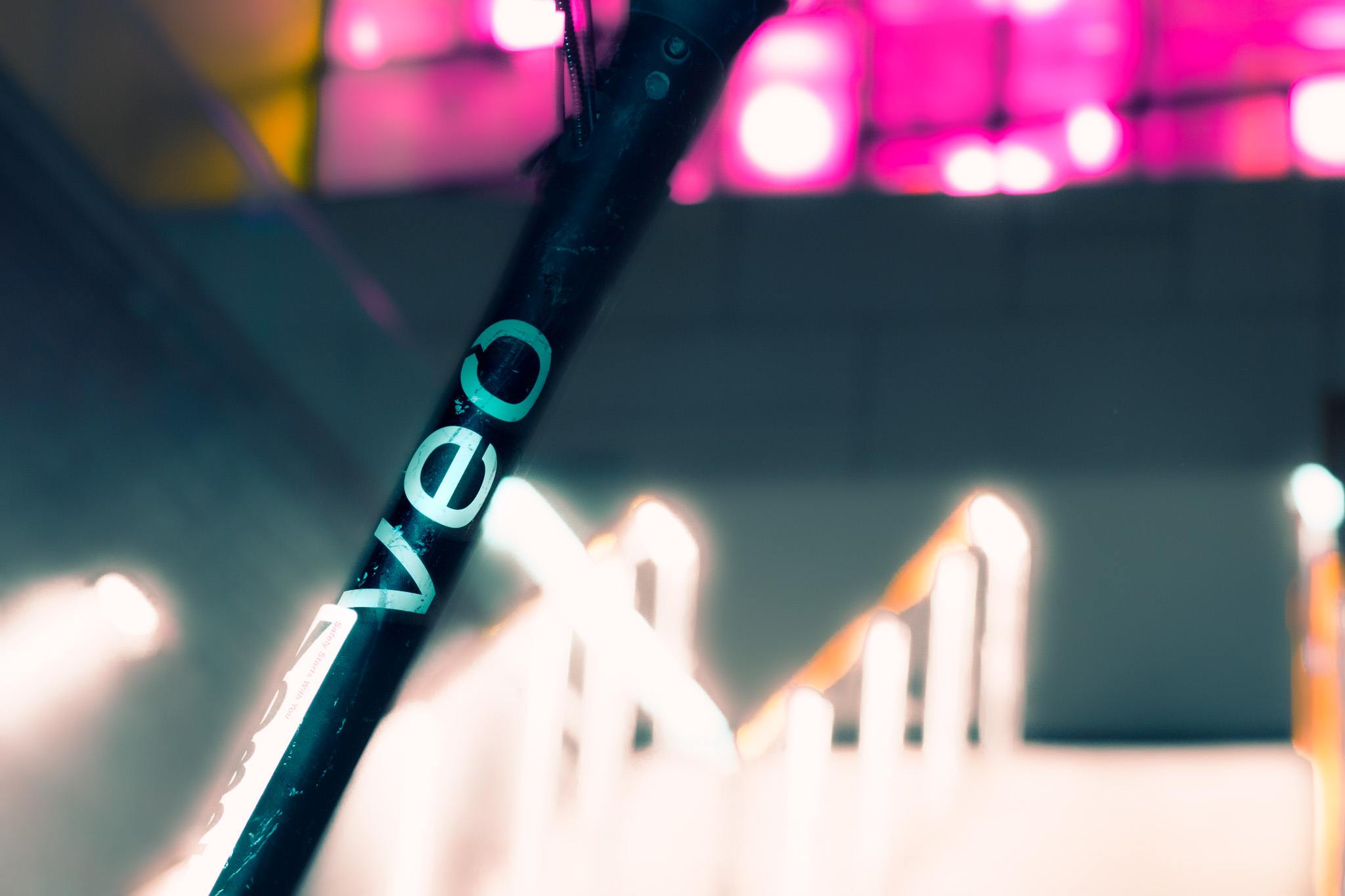Views expressed in opinion columns are the author’s own.
I, like many at this university, am annoyed with Veos. From sidestepping the scooters strewn about campus sidewalks to worrying about scooters mowing me down as I walk to class, I am frustrated with the choices of many individual riders. It’s difficult to constantly predict where a scooter is approaching by the ambiguous drone of their bells — and that’s only if the rider is considerate enough to give me a warning before they zoom by.
In response to some of the safety concerns e-scooters pose, the University of Maryland has implemented policies like rental curfews, which prevent people from using Veo scooters after 10 p.m. This policy is likely to prevent dangerous, late-night joyriders from causing devastating accidents. I’m grateful this university has shown commitment to micromobility safety. However, it’s taken a heavy-handed, indirect approach, which is unfortunately very in character for this university.
Many have accurately pointed out that this decision severely limits access to safe transportation while navigating campus late at night. And with the numerous robberies, attempted carjackings and shootings happening in our community, it’s easy to see why people are concerned. Instead of hurting students trying to get around campus, this university must opt for micromobility policies that specifically target the problem — unsafe riders.
A contributing factor to the decision to create a rental curfew could be the threat of drunk riders coming back to campus from a night out on the town. But this assumes we know that drunk night-riders are what’s making micromobility devices on campus unsafe. Unfortunately, we don’t.
This is because alarmingly, this university does not require accidents — even those that cause injury — to be reported. Required accident reports would go a long way towards holding unsafe riders accountable and getting them off the road.
It would also equip this university with better information for preventative measures that would actually make e-scooter riding safer on campus. For instance, if speed is a contributing factor in many accidents, e-scooter speed limit signage might help protect students.
While individuals have the option to report accidents to the Department of Transportation Services, this university is currently stuck with an incomplete picture of micromobility dangers. It also means that we don’t even know if night-riding is any more unsafe than day-riding. In fact, this university could very well be endangering its students by limiting access to safe transportation when we are at our most vulnerable late at night.
If it’s true that drunk riders are causing a safety problem, proactive measures to prevent inebriated riders from renting e-scooters are a far more direct way of combating this issue.
One major shortcoming of Veo scooters is that they offer limited protections against impaired drivers operating them. While other scooter brands have added provisions like short puzzles and stability monitors to detect drunk riding, Veo does not equip e-scooters with any of these features.
This is a travesty. Even something as simple as a system for bystanders to report drunk riders would make safe night riding possible.
Since Veo has made a commitment to work with colleges to improve its scooters, this university must implore the company to add some or all of these safety features. If Veo refuses to do so, this university should explore working with one of the company’s many competitors.
On top of this, this university has failed to consider basic provisions that are proven to prevent riding injuries. For instance, implementing and enforcing a requirement for all riders to wear helmets during the duration of their rides would greatly mitigate the risk of catastrophic head injuries.
Notwithstanding my personal misgivings, the increased presence of e-scooters on college campuses is a good thing. They are a convenient, fast and environmentally friendly way for students to travel in-and-around our campus community. Crucially, they have the potential to be a catalyst to expand support for infrastructure like protected bike lanes, which could be a long-term solution for current micromobility safety issues. This would make scootering in the open road safer, and thus reduce the incidence of collisions.
But if this university continues to rely on misguided micromobility policies, it will forsake its role in pushing for environmentally friendly and safe transportation.
We cannot throw the baby out with the bath water with broad-stroke policy decisions. Preventing unsafe riders from renting e-scooters is the root of the problem. Giving our campus safer scooters and increasing the reliability of accident reports will go a long way towards solving it.
Ravi Panguluri is a junior computer science and statistics major. He can be reached at rpangulu@umd.edu.



